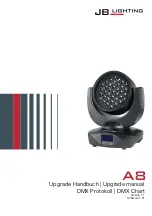
23
English
11) View Measurement
The ISQ values are shown directly on the screen. To browse between the measured values, use the arrows.
How to Measure on an Abutment
When a measurement is made on an abutment or on an implant with a “built-in” abutment, the ISQ value will
be lower compared to a measurement made on the implant. This is due to the difference in height above bone.
To find out the ISQ difference to the measurement performed at implant level, a measurement should be taken
on the implant before the abutment is attached and then a second measurement on the abutment.
12) Interpret the Result
Implant Stability
An implant has different degrees of stability in different directions. The total stability consists of the implant
stability in relation to the surrounding bone, and the stability of the bone itself. There is always a direction
where the stability is lowest, and a direction where the stability is highest and these two directions are
perpendicular to each other. The SmartPeg measures the stability in both directions, thus two different ISQ
values can be achieved on the same implant. Sometimes the two ISQ values will be very close to each other,
or even the same. The high value, which in most cases is found in the mesiodistal direction, mainly reflects the
stability in relation to the bone. If a lower value is found, it reflects more of the total stability, where the bone
anatomy is a factor.
The ISQ Value
Stability measurements using the Osstell IDx should be performed after the implant or abutment has been
placed, assuming there is access to the implant. Measurements should be performed at implant placement
and before the implant is loaded or the abutment is connected. After each measurement, the ISQ values are
recorded and used as the baseline for the next measurement performed. A change in the ISQ value reflects a
change in implant stability.
In general, an increase in ISQ values from one measurement time to the next indicates a progression
towards higher implant stability while a decrease in ISQ values indicates a loss in stability and, possibly,
implant failure. A stable ISQ value would indicate no change in stability. ISQ values have not been correlated
with other methods of implant mobility measurements.
Osstell Connect
Login to
www.OsstellConnect.com
for access to tools to interpret and analyze your data. Patient names are not
uploaded to Osstell Connect for security reasons, so to find the corresponding patient use “Reference number”
as an identifier.
13) Cleaning and Maintenance
Instrument:
can be cleaned using a damp cloth with water or isopropyl alcohol solution.
SmartPegs:
single use only.
Probe and
SmartPeg
Mount:
must be autoclaved according to the recommended sterilization method, validated
to sterility assurance levels (SAL), according to ISO 17665-1 and ISO 17664. Other
sterilization cycles may also be suitable, although individual clinicians or hospitals
are advised to validate other methods before use. The Probe and SmartPeg Mount
should be placed in suitable packaging for the sterilization process.
















































